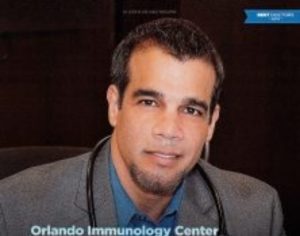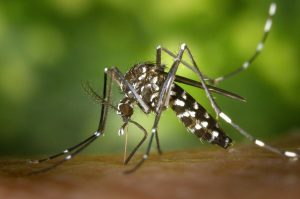What is the Purpose of PrEP?
- What is PrEP?
- How effective is PrEP?
- How long do I take PrEP before it works?
- What medications are taken during PrEP?
- Does PrEP have side effects?
- How do I get started?
- Is PrEP right for me?
Preventing an HIV infection could be what saves your life, and thanks to drugs like pre-exposure prophylaxis (PrEP), HIV prevention is more accessible than ever before. When taken as prescribed, this medication is highly effective in protecting you from contracting HIV.
How long is PrEP effective? What side effects does it have, and what is the best way to get started? Here is what you should know about PrEP.
What Is PrEP?
PrEP is designed to prevent HIV transmission. The idea is to take the PrEP treatment before sexual contact or drug use so that the anti-HIV medications are in the body ahead of time. PrEP stops HIV from entering your cells and replicating, which prevents the spread of the disease from one person to another.
We should note that PrEP does not prevent pregnancy or other sexually transmitted illnesses; instead, it’s focused primarily on HIV, which is a retrovirus that attacks the immune system.
The virus is found in bodily fluids such as blood, genital fluids, and breast milk. Because of this, typically, HIV is transmitted by:
- Sharing needles during injection drug use
- Having unprotected sex
Babies can also inherit an HIV infection from their mother if she is HIV positive while pregnant or breastfeeding.
Without treatment, a person with HIV can develop serious secondary cancers and infections that a normally healthy immune system could handle. PrEP is a proactive way to flood the body with medications that can help prevent the virus if you are exposed.
PrEP can help you if:
- You are at risk for contracting HIV during sex
- You don’t always use condoms
- Your sexual partner doesn’t know their HIV status
- You are HIV-negative
- You are willing to take the prescription as recommended
PrEP cannot help you if:
- You’re seeking a one-and-done strategy to prevent HIV
- You were inadvertently exposed to HIV in the last 72 hours and you weren’t already on PrEP
- You’re trying to prevent pregnancy or other sexually transmitted diseases
- You are currently living with HIV
If you believe you’ve been exposed to HIV in the last 72 hours, talk to your healthcare provider immediately or go to the ER to talk about post-exposure prophylaxis
How Effective Is PrEP?

When taken as directed, PrEP is highly effective at reducing the spread of HIV. We know that:
- PrEP is 99% effective in preventing HIV transmitted through sex
- PrEP is 74% effective in reducing the risk of HIV transmission through injection drug use
While these numbers are heartening, we should mention that PrEP is only effective when the medications used during the treatment are taken exactly as prescribed. Also, PrEP only works to prevent HIV, so condom use during sex and avoiding sharing needles during drug usage is still very important.
You cannot miss a PrEP pill, either. These medications are once daily preventative treatments. If you miss your daily dose, it increases your risk of contracting HIV.
How Long Do I Take PrEP Before It Works?
You must take PrEP for seven to 21 days before having sex or engaging in injection drug use for the medications in your bloodstream to reach their peak effectiveness. The data shows that maximum protection occurs:
- After about seven days of regular use if you are planning on having anal sex
- After 21 days if you are planning on having vaginal sex or planning injection drug use
What Medications Are Taken During PrEP?
In 2012, the FDA approved the use of a pill called Truvada for PrEP protocols. Today there are two primary PrEP treatments to choose from:
- Truvada consists of a combination pill of several medications, including emtricitabine/tenofovir disoproxil fumarate
- Descovy is made up of emtricitabine/tenofovir alafenamide
There is also a new medication being developed in the form of a vaginal ring that contains an anti-HIV medication called Dapivirine. This medication has been tested in Africa and it is currently under review by the FDA in the United States. However, the African field trials show significant promise.
Does PrEP Have Side Effects?
PrEP is safe to take, but a few side effects may occur such as diarrhea, fatigue, headache, nausea, and stomach pain. The data shows only a small number of people experience significant side effects and these disappear after stopping the medications.
Rarely, side effects may occur that affect the kidneys or bones. Talk with your doctor to see if the risks should keep you from taking PrEP.
How Do I Get Started With PrEP?
The first step is to see your healthcare provider. PrEP must be prescribed by your doctor and only after you confirm a negative HIV test. PrEP also requires that you visit your clinician every three months to:
- Have a follow-up health visit
- Potentially take another HIV test
- Seek prescription refills
These regular visits are also an excellent opportunity to have your health-related questions answered by a professional.
Is PrEP Right for Me?

You should talk with your doctor about your options. The key to using PrEP effectively is that, with your doctor’s supervision, you can stop and start these medications to accommodate behaviors at different points in your life.
The good news is that most private insurance plans, including Medicaid, cover the PrEP treatment. There are even pharmaceutical assistance programs which can offset the costs of these preventative treatments.
If you are at an increased risk of developing HIV, the time may be right to apply PrEP prevention to your life. If your partner has HIV but you do not, PrEP can lessen your risk. There are also other steps you can take to reduce the chances of developing HIV, such as:
- Using condoms
- Using lube to prevent tiny breaks in the skin which make you more susceptible to HIV
- Getting tested regularly to confirm your status
- Treating any sexually transmitted infections
- Taking care of your health
- Having the conversation about HIV status
Orlando Immunology Center is our community’s leading infectious disease and HIV clinic. Talk with our team today about how to best prevent the virus that causes AIDS. We can help.
More Articles
Dr. DeJesus Recognized by Orlando Magazine
For the 5th consecutive year, Dr. DeJesus has been recognized by his peers in Orlando Magazine for his work as medical director at Orlando Immunology Center. Dr. DeJesus is a graduate from the University of Puerto Rico, School of Medicine. He completed his Internal Medicine training and Infectious Disease fellowship at the Medical College of…
Read MoreJoin OIC at the 2015 AIDS Walk Orlando
Orlando Immunology Center is pleased to announce that we will again be sponsoring a team at this year’s 2015 AIDS Walk Orlando. If you are interested in joining our team or donating to this worthwhile cause, please let us know. Saturday, March 28, 2015 In Florida, 15% of all new HIV infections reported among females…
Read MoreOIC Wins Wave Award for Favorite Local Healthcare Professional
The Orlando Immunology Center (OIC) announced today they have received the Central Florida/Orlando 2015 Watermark Awards for Variety and Excellence (WAVE) Award for favorite local healthcare professional. “We see this as a huge honor and will continue to do everything in our power to help patients from all walks of life be healthy, happy and…
Read MoreDr. DeJesus Recognized by Orlando Magazine
For the 5th consecutive year, Dr. DeJesus has been recognized by his peers in Orlando Magazine for his work as medical director at Orlando Immunology Center. Dr. DeJesus is a graduate from the University of Puerto Rico, School of Medicine. He completed his Internal Medicine training and Infectious Disease fellowship at the Medical College of…
Read MoreJoin OIC at the 2015 AIDS Walk Orlando
Orlando Immunology Center is pleased to announce that we will again be sponsoring a team at this year’s 2015 AIDS Walk Orlando. If you are interested in joining our team or donating to this worthwhile cause, please let us know. Saturday, March 28, 2015 In Florida, 15% of all new HIV infections reported among females…
Read MoreOIC Wins Wave Award for Favorite Local Healthcare Professional
The Orlando Immunology Center (OIC) announced today they have received the Central Florida/Orlando 2015 Watermark Awards for Variety and Excellence (WAVE) Award for favorite local healthcare professional. “We see this as a huge honor and will continue to do everything in our power to help patients from all walks of life be healthy, happy and…
Read MoreDr. DeJesus Presented the Chuck Hummer, III, Visionary Award
Congratulations to Dr. DeJesus for winning the Chuck Hummer, III, Visionary Award presented at this year’s Headdress Ball benefiting Hope and Help Center of Central Florida, Inc. The award is given annually to individuals in the community who have made a difference in the fight against HIV/AIDS. OUR TEAM REQUEST AN APPOINTMENT
Read More8 Ways You Can Protect Your Liver When You’re Living With Hepatitis C
Hepatitis C is the leading cause of severe liver disease and liver cancer, both of which can be fatal. So, what are some of the ways you can protect your liver when you’re living with hepatitis C? To keep your liver healthy when living with hepatitis C, the most important thing to do is to…
Read MoreDr. DeJesus Orlando Sentinel Interview About Actor Charlie Sheen
Dr. Edwin DeJesus was recently interviewed by the Orlando Sentinel about well-known actor Charlie Sheen, confirming that he was HIV-positive. To read the full article click here or click the image below. OUR TEAM REQUEST AN APPOINTMENT
Read MoreDr. Edwin DeJesus Included on Best Doctors 2015 List by Orlando Magazine
Dr. DeJesus was recently voted “Best Doctors 2015” by Orlando Magazine. The Best Doctors in America® List includes the nation’s most respected specialists and outstanding primary care physicians in the nation. These are the doctors that other doctors recognize as the best doctors in their fields. They cannot pay a fee and are not paid…
Read MoreWhat to Expect On Your First STD Screening
Let’s face it. Going for your first STD screening can be a bit nerve-racking, but knowing your status doesn’t have to be scary! To put your mind at ease we provide tips on when you should get tested and what to expect at your first screening. Should I Get Tested? If you experience any symptoms…
Read More5 Things You Should Know About PrEP
PrEP stands for pre-exposure prophylaxis and is a preventative option for people who do not have HIV, but are at a high risk of contracting HIV. The word “prophylaxis” means to prevent or control the spread of an infection or disease. PrEP is a pill that contains two medicines that are also used to…
Read MoreCDC Confirms That The Zika Virus Can Be Sexually Transmitted
If you’ve consumed any piece of news in the last week, you may have heard about an outbreak of the Zika virus. Warnings urged pregnant women to avoid travel to areas with a large number of cases due to possible birth defects. It was originally believed that the Zika virus could only be transmitted from…
Read More










